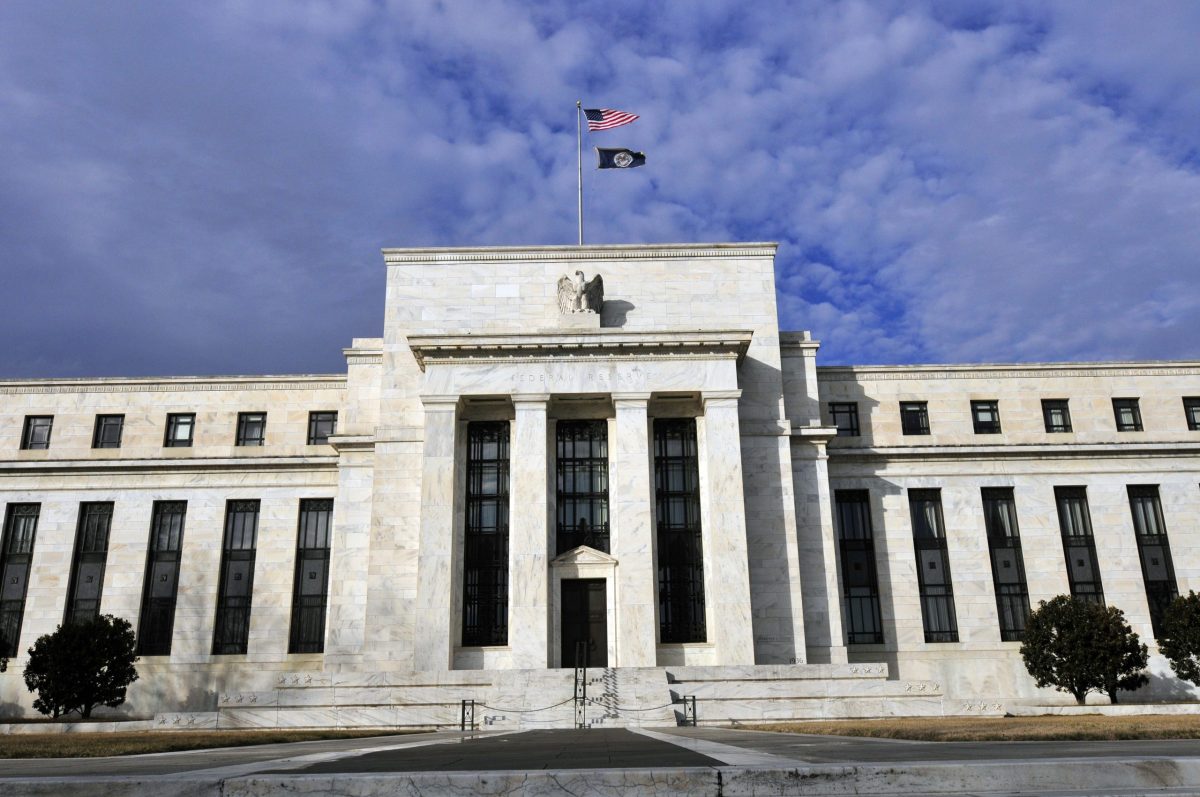U.S. Rate Cut Predictions for 2025 Amid Ongoing Inflation Concerns
10.01.2025 12:30 2 min. read Kosta Gushterov
Kathryn Rooney Vera, Chief Market Strategist at StoneX, shared her perspective on the Federal Reserve's potential moves in the face of inflationary pressures during an appearance on CNBC's Squawk Box.
She believes that while the U.S. economy continues to show growth, the Fed might opt for two rate cuts later in the year, but only after the second quarter.
With the markets focused on the release of the upcoming employment report, Vera highlighted the ongoing inflation issues and fiscal hurdles. While remaining cautiously optimistic, she pointed out that the U.S. economy’s growth, which exceeded expectations last year at 1.8%, could fuel inflation further if fiscal policies do not change.
Vera stressed that sustained economic growth above potential levels, without a tightening of fiscal policies, could push inflation higher. She warned that if spending isn’t curbed, inflation could remain problematic, urging investors to stay vigilant.
Looking ahead, Vera expressed doubts about immediate actions from the Fed. Although she doesn’t foresee any major changes in the near term, she noted that if inflation continues to rise past 3.5%, the Fed might have to revisit its position. Despite this, she believes the central bank is unlikely to shift its stance unless inflation significantly increases.
In her advice to clients, Vera recommended preparing for different outcomes, noting that stronger-than-expected growth could delay the anticipated rate cuts. She emphasized the importance of protecting against the risk that the Fed might not reduce rates at all.
On the global stage, Vera observed that private investment worldwide is approaching record highs, which could signal potential for economic expansion. However, she reiterated concerns about the ongoing challenge of high inflation, which may persist in the coming months, despite the overall growth outlook.
-
1
U.S. PCE Inflation Rises for First Time Since February, Fed Rate Cut Likely Delayed
27.06.2025 18:00 1 min. read -
2
Key U.S. Economic Events to Watch Next Week
06.07.2025 19:00 2 min. read -
3
Gold Beats U.S. Stock Market Over 25 Years, Even With Dividends Included
13.07.2025 15:00 1 min. read -
4
U.S. Announces Sweeping New Tariffs on 30+ Countries
12.07.2025 16:30 2 min. read -
5
US Inflation Heats Up in June, Fueling Uncertainty Around Fed Cuts
15.07.2025 16:15 2 min. read
US Inflation Heats Up in June, Fueling Uncertainty Around Fed Cuts
U.S. inflation accelerated in June, dealing a potential setback to expectations of imminent Federal Reserve rate cuts.
Gold Beats U.S. Stock Market Over 25 Years, Even With Dividends Included
In a surprising long-term performance shift, gold has officially outpaced the U.S. stock market over the past 25 years—dividends included.
U.S. Announces Sweeping New Tariffs on 30+ Countries
The United States has rolled out a broad set of new import tariffs this week, targeting over 30 countries and economic blocs in a sharp escalation of its trade protection measures, according to list from WatcherGuru.
Key U.S. Economic Events to Watch Next Week
After a week of record-setting gains in U.S. markets, investors are shifting focus to a quieter yet crucial stretch of macroeconomic developments.
-
1
U.S. PCE Inflation Rises for First Time Since February, Fed Rate Cut Likely Delayed
27.06.2025 18:00 1 min. read -
2
Key U.S. Economic Events to Watch Next Week
06.07.2025 19:00 2 min. read -
3
Gold Beats U.S. Stock Market Over 25 Years, Even With Dividends Included
13.07.2025 15:00 1 min. read -
4
U.S. Announces Sweeping New Tariffs on 30+ Countries
12.07.2025 16:30 2 min. read -
5
US Inflation Heats Up in June, Fueling Uncertainty Around Fed Cuts
15.07.2025 16:15 2 min. read


